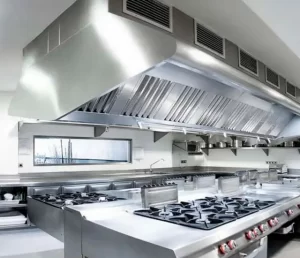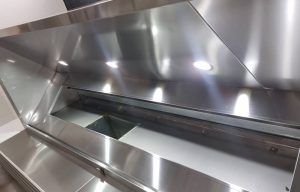In a bustling commercial kitchen, the exhaust fan is an unsung hero that keeps the air clean and free from harmful contaminants. However, it is often an overlooked component when it comes to regular cleaning and maintenance. Neglecting to clean your kitchen exhaust fan can lead to hidden dangers that pose risks to your kitchen staff, customers, and the overall operation of your establishment. In this article, we will explore the hidden dangers of neglecting kitchen exhaust fan cleaning and why it should be a priority in your maintenance routine.
Fire Hazard
One of the most significant dangers of neglecting kitchen exhaust fan cleaning is the increased risk of fire. Over time, grease and residue accumulate on the fan blades, motor, and housing. This buildup becomes highly flammable and can ignite with a single spark. A neglected exhaust fan can quickly become a fire hazard, putting your entire kitchen and staff at risk. Regular cleaning and degreasing of the exhaust fan significantly reduce the chances of a devastating fire and help ensure a safe working environment.
Decreased Ventilation Efficiency
The primary function of the kitchen exhaust fan is to remove smoke, steam, and airborne contaminants generated during cooking. However, when the fan is clogged with grease and debris, its efficiency is compromised. A neglected exhaust fan struggles to effectively extract smoke and odors from the kitchen, resulting in poor ventilation. This can lead to discomfort for your staff, lingering cooking smells, and even health issues caused by exposure to indoor air pollutants. Regular cleaning of the exhaust fan ensures optimal ventilation, promoting a healthier and more pleasant working environment.
Increased Energy Consumption
An unclean exhaust fan requires more power to operate effectively. When grease and debris accumulate on the fan blades and motor, it causes resistance and decreases the fan’s efficiency. As a result, the exhaust fan consumes more energy to achieve the desired airflow. Neglecting fan cleaning can lead to increased energy bills, impacting your operational costs. By regularly cleaning and maintaining the exhaust fan, you ensure efficient operation, reduce energy consumption, and save on utility expenses.
Impaired Fan Performance and Lifespan
Continuous exposure to grease and debris can cause significant damage to the exhaust fan over time. The accumulation of these substances can lead to imbalanced fan blades, motor malfunction, and increased wear and tear. Neglected fan cleaning can result in reduced performance, noisy operation, and premature failure of the fan system. Regular cleaning and maintenance not only enhance the fan’s performance but also extend its lifespan, saving you from costly repairs or replacement.
Compliance and Insurance Issues
Failure to properly clean and maintain your kitchen exhaust fan can lead to compliance and insurance issues. Many health and safety regulations require regular cleaning of kitchen exhaust systems to ensure a safe working environment. Neglecting fan cleaning may result in violations, penalties, and loss of insurance coverage. By prioritizing regular cleaning, you demonstrate your commitment to meeting regulatory requirements and maintaining a safe and compliant establishment.
Conclusion
Neglecting kitchen exhaust fan cleaning can have severe consequences for your commercial kitchen. From fire hazards and compromised ventilation to increased energy consumption and impaired fan performance, the dangers are far-reaching. It is crucial to include regular cleaning and maintenance of the exhaust fan in your kitchen hygiene routine. By doing so, you create a safer, more efficient, and compliant kitchen environment that benefits your staff, customers, and business as a whole. Don’t underestimate the hidden dangers of neglected fan cleaning; take proactive steps to keep your kitchen running smoothly and safely.









